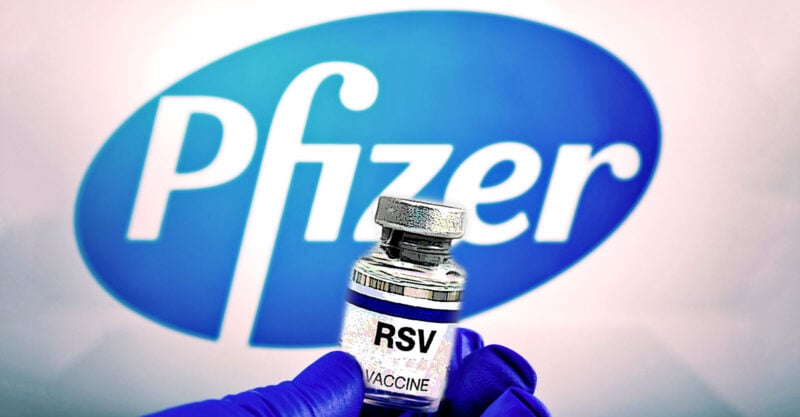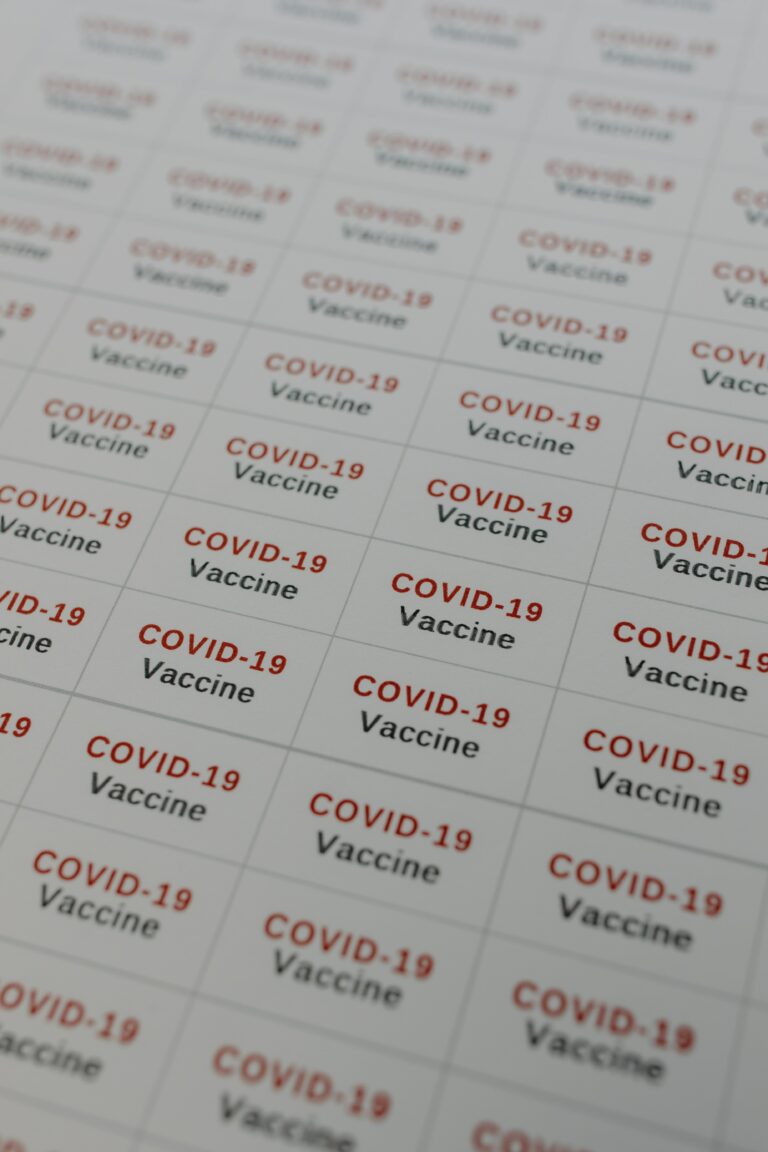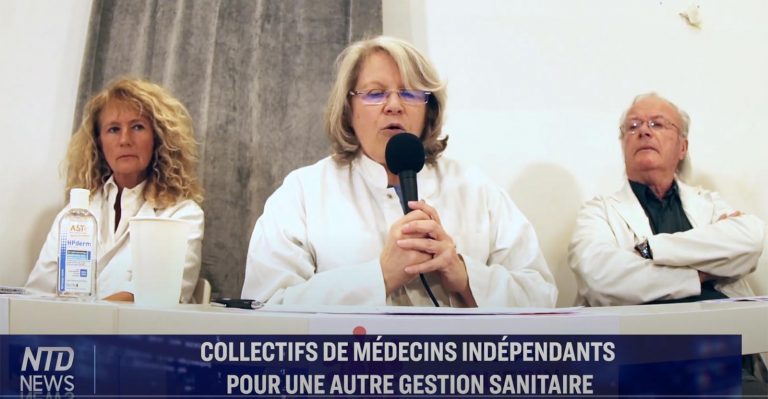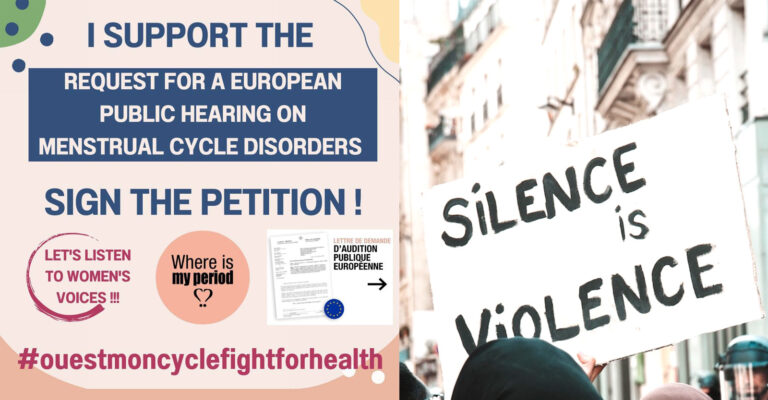Pfizer Seeks FDA Approval for RSV Vaccine for Young Adults, Is Also Conducting RSV Trial for Kids as Young as 2
Pfizer said Tuesday it plans to use data from a clinical trial it concluded last month to seek expanded approval of its RSV vaccine, Abrysvo, for all adults ages 18 and up. The vaccine maker also said it has begun trials for the drug in children ages 2-18.
Pfizer plans to use data from a clinical trial it concluded last month to ask regulators to expand approval of its respiratory syncytial virus (RSV) vaccine, Abrysvo, for all adults ages 18 and up, the drugmaker said in a press release Tuesday.
Pfizer also reported that it has begun a trial evaluating the drug in children ages 2-18 who are at higher risk for RSV disease.
Family medicine physician Dr. Kat Lindley told The Defender she is concerned about the rush to promote vaccines to treat RSV when the vaccines have serious risks and there are other methods of prevention and treatment.
“In my almost 20 years of practice, I have found RSV to be an illness most common in babies 12 months and younger, very responsive to supportive treatment. In recent years we are seeing it in elderly and immunocompromised patients,” she said. “Again the key thing for all these age groups is early supportive therapy and monitoring as needed.”
Typically, she said, the 18-59 age group is not at risk for RSV.
Among a series of approvals for drugs and vaccines to treat RSV last year, the U.S. Food and Drug Administration (FDA) approved Pfizer’s Abrysvo for people age 60 or older in late May 2023.
In August 2023, the agency expanded Abrysvo’s approval to protect babies through the first six months of life by vaccinating pregnant mothers between 32-36 weeks of pregnancy, despite safety concerns.
Pfizer uses ‘immunobridging’ to extrapolate efficacy in younger adults
The company reported positive results from its Phase 3 MONeT clinical trial in adults ages 18-59 at increased risk of developing severe RSV-associated lower respiratory tract disease.
If the drug is approved, Pfizer will be the first company to win approval for an RSV vaccine in that age group, which typically is not at risk for severe RSV.
The MONet trial examined Abrysvo among about 900 adults of varying ages in two subgroups — one group had chronic medical conditions and the other group was made up of immunocompromised people.
The company reported that one month after vaccination, trial participants showed a four-fold increase in neutralizing antibodies and that the drug was well-tolerated and “safety findings were consistent with those from previous investigations of ABRYSVO in other populations.”
The company reported that a single dose of the vaccine administered to adults in the trial demonstrated an immune response that was not worse than the response in adults over 60 in a similar trial.
Based on those results, the company said, it is using “immunobridging” to extrapolate the drug’s efficacy in younger adults.
Immunobridging is a method of inferring vaccine effectiveness for one group by comparing immune response markers, like the production of antibodies, to the immune response markers in another group for which efficacy is known.
If approved, the company could skip double-blind placebo-controlled efficacy trials for that population.
The results have not yet been peer-reviewed or published. Pfizer said it plans to submit the data to regulatory agencies and ask them to expand the drug indication. It also plans to publish the trial results.
Since launching Abrysvo last year, Pfizer has been trying to close the sales gap with vaccine rival GSK, whose Arexvy RSV vaccine for people ages 60 and older was approved first, in early May 2023.
Pfizer CEO Albert Bourla said that Abrysvo had been a “bad launch” for Pfizer and the company would be looking to boost its market share, FiercePharma reported.
The drug generated $890 million for Pfizer in 2023. GSK made roughly $1.5 billion for Arexvy.
The RSV vaccine market is estimated to be worth up to $10 billion by 2030.
34 deaths in less than a year
During clinical trials for both the GSK and Pfizer vaccines among older adults, several participants were diagnosed with rare conditions such as Guillain-Barré syndrome and acute disseminated encephalomyelitis (ADEM). One of the trial participants who developed ADEM later died, according to the FDA.
Four members of the FDA’s vaccine advisory committee voted against approving the drug because they said the safety data weren’t adequate given concerns regarding Guillain-Barré. Despite their concerns, the FDA approved the drug and mandated post-marketing surveillance for Guillain-Barré syndrome.
In less than a year since the RSV vaccines were approved for the two groups, Centers for Disease Control and Prevention (CDC) data and the Vaccine Adverse Event Reporting System (VAERS) already show reports of 34 deaths, 302 serious adverse events and a safety signal for Guillain-Barré syndrome.
Reported cases include several instances of severe adverse events in newborns, including the death of a 27-day-old baby who was wrongly administered the vaccine, and in pregnant women and people in age groups for which the RSV vaccines were not approved.
At the February meeting of the CDC’s advisory committee, researchers presented more data showing an apparent elevated risk of Guillain-Barré syndrome among people over 60 who took the Pfizer vaccine. They also detected cases among people who took GSK’s version.
The CDC said it is continuing to study the connection.
There also are concerns about the safety profile of the vaccine for pregnant mothers. GSK stopped clinical trials for Arexvy among pregnant mothers when it identified an increased risk of preterm births among the vaccinated trial participants.
Although Pfizer’s FDA-approved maternal RSV vaccine is bivalent and GSK’s RSVPreF3-Mat is monovalent, “the vaccines are otherwise similar,” according to the New England Journal of Medicine.
Yet, Pfizer reported the slight increase in preterm births among vaccinated mothers in its trials was not statistically significant and the FDA approved the drug. The agency required Pfizer to conduct post-marketing surveillance for preterm birth and hypertensive disorders of pregnancy.
A ‘significant unmet need,’ or an unnecessary risk?
RSV is a common respiratory virus that usually causes mild cold-like symptoms but, according to the CDC and the Mayo Clinic, infants and older adults can be at higher risk of developing severe RSV and needing hospitalization.
Pfizer also reported in its press release that approximately 10% of adults under age 60 with certain underlying chronic conditions such as asthma, diabetes or chronic obstructive pulmonary disease are also at increased risk of severe RSV. That number increases as people age, the company said.
“We are excited to address a significant unmet need, pending regulatory authority approval, as ABRYSVO has the potential to become the first and only RSV vaccine for adults 18 years and older,” said Pfizer’s Annaliesa Anderson, Ph.D., senior vice president and head of Vaccine Research and Development.
According to Trial Site News, the study Pfizer used to estimate the “higher risk,” in the 18-59 year old age group had “numerous limitations” and it is “questionable” whether it can be used as a basis to target this age group. The study was funded by Pfizer and published in January.
Lindley said that it was important to have a solid safety profile before recommending the RSV vaccine to any population.
“We have to start abandoning this idea that we need to vaccinate our way out of illnesses/life,” Lindley said. “Best prevention is a healthy lifestyle, stress reduction and plenty of sleep.”
Suggest a correction







